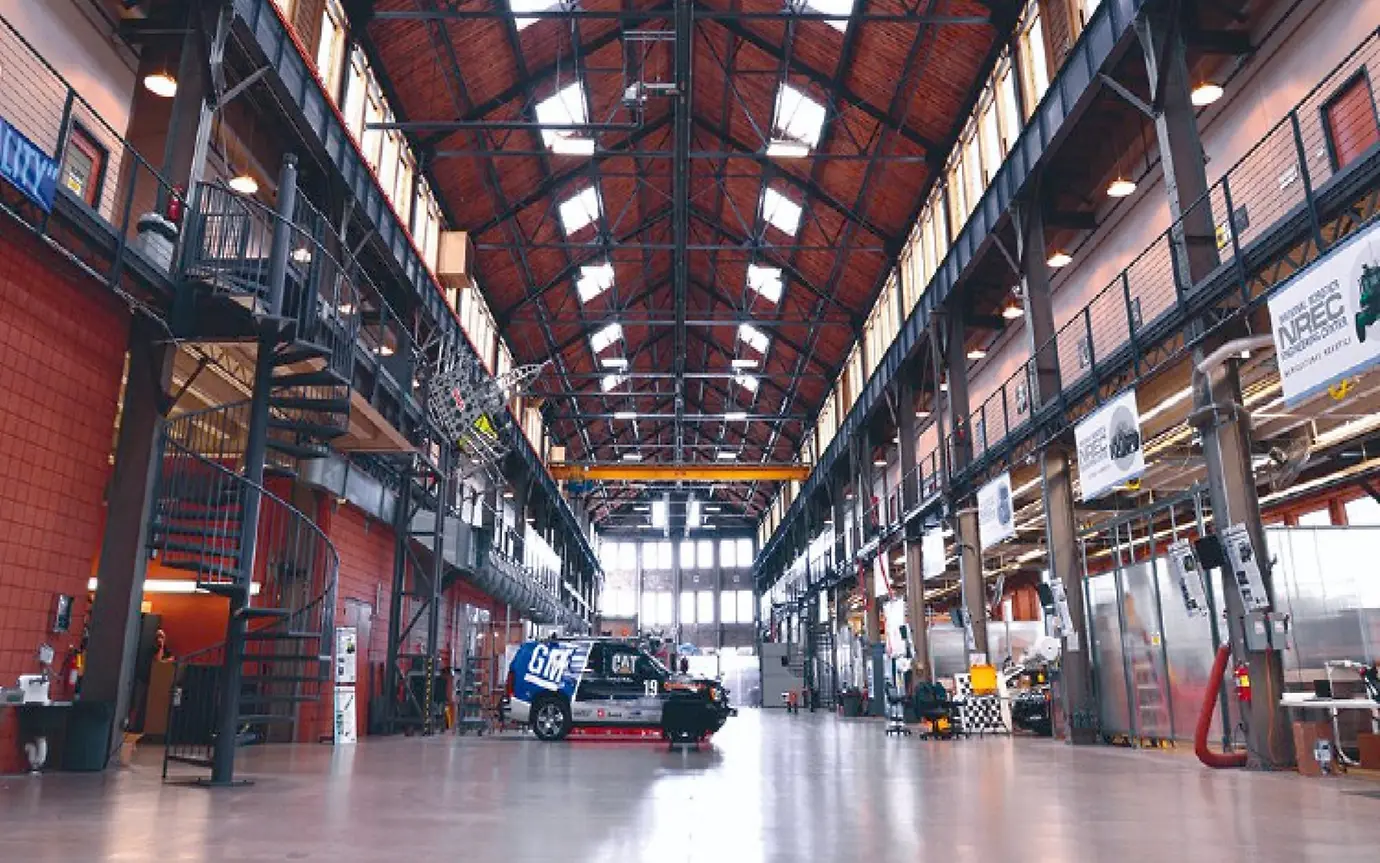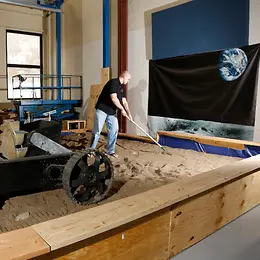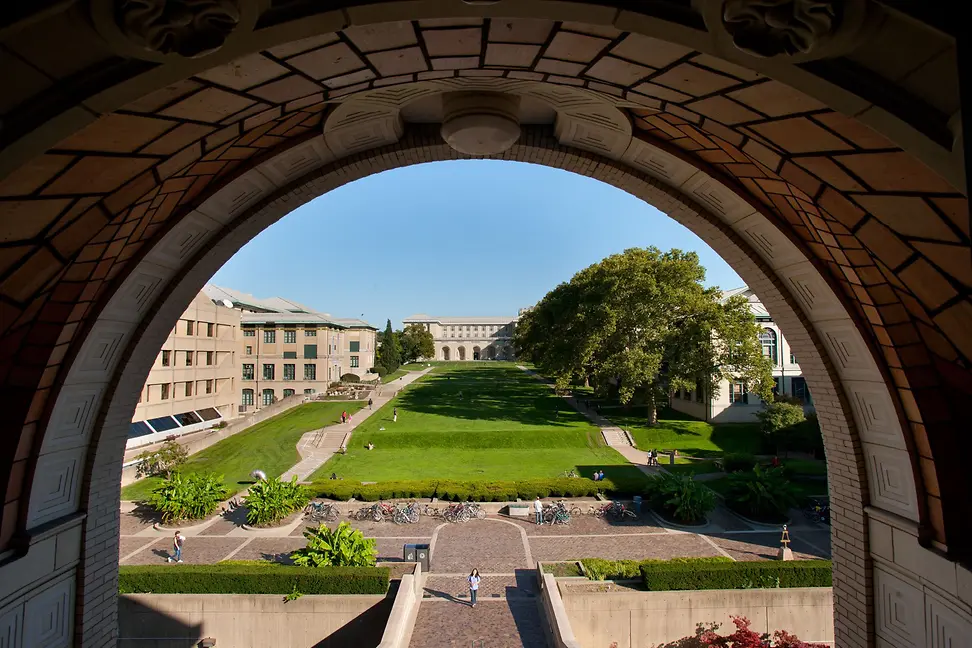- Home
-
Private banking
-
LGT career
Driven by renowned universities and a deep talent pool, Pittsburgh has evolved into a global hotbed of robotics and automation. The only thing startups and established players would like to see more of is venture capital to fund their ideas.

If the name Pittsburgh conjures up images of smokestacks, steel mills and robber barons like J.P. Morgan and Andrew Carnegie, consider this: the city is home to the oldest and largest robotics institute in the world and boasts the country’s top-ranked graduate degree program for artificial intelligence, both housed at Carnegie Mellon University (CMU). It’s where the world’s most downloaded language training app, Duolingo, is headquartered, and where companies from Bosch and Ford to Honeywell and Google have set up shop to push the envelope in all things automation, particularly around autonomous vehicles. As if that’s not enough, a Pittsburgh-based startup called Astrobotic Technology plans to become the first company to send a commercial lunar lander to the Moon later this year.

The city of roughly 300'000 people provides a compelling case study for what urban transformation looks like when academia continuously sows the seeds for commercial endeavors in a disruptive field. Thanks to a steady stream of newly minted programmers and other experts coming out of Carnegie Mellon and the nearby University of Pittsburgh, the city has become a hotbed of robotics research and its practical applications, drawing on some of its old strengths as a manufacturing hub. It also serves as an example of how cities far away from Silicon Valley can carve and expand a strong niche for themselves in technologies deemed essential for the 21st century.
Pittsburgh now has more than 100 companies in the robotics and automation space, from small startups all the way to established players that develop next-generation software and hardware for tomorrow’s autonomous tractors, drones and passenger vehicles.

“The sector employs around 14'000 people and keeps growing, touching everything from agriculture to construction to logistics and manufacturing,” says Joel Reed, a former tech executive who headed the Pittsburgh Robotics Network until May. Reed describes the goal of the organization, which recently started accepting members from around the world, as “trying to build a new economy around the universities. We take groundbreaking technology and translate it into something useful and viable.” To speed things up, his network launched a dedicated startup accelerator called the Robotics Factory.

The undisputed hub of this network is Carnegie Mellon University, which was launched by the fortunes of the two wealthy local industrialists of the same name more than a century ago. The private university attracts talent from around the globe and graduated close to 13'000 students between 2019 and 2022 alone. Many of them go on to either work for local tech companies or start their own business.
One of CMU’s crown jewels is the Robotics Institute, which has a combined headcount of close to 1000 staff, faculty and students, and an annual haul of 120 million US dollars in sponsored research. “We started out in the late 1970s as a refuge for a bunch of people who worked on robots and didn’t have another home, and we have morphed into a mature discipline that’s moved into the center of computer science,” says the Institute’s director Matthew Johnson-Roberson.

The Robotics Institute has spun out 80 companies over the last 25 years, according to Johnson-Roberson, and the speed of successful commercialization is picking up, he says. That’s due to the network effects of a fairly small town where graduates and founders are literally within walking distance of each other.
Gather AI is one example. It offers a cloud-based platform for operating autonomous inspection drones in large facilities such as warehouses and distribution centers. Gather’s three founders all completed their higher education programs at CMU, hatched their idea there and received initial support from the university. “We could tap into other robotics and autonomy companies that are solving similar problems in hardware and software, and the two schools here are teaching what we need,” says cofounder and CEO Sankalp Arora.
Gather has so far raised 17 million US dollars and has deployed its inventory management system in 17 warehouses around the US. The software enables drones to navigate through racks with thousands of pallets and inspect inventory up to 15 times faster than humans with a forklift would be able to do. “What took some companies 90 days now takes 2.5 days. That sometimes makes the difference between items expiring and losing a lot of money,” says Arora. His company next wants to expand into outdoor inspections in yards and ports.
Xunjie Zhang is another CMU-trained roboticist who has leveraged his academic connections to launch a startup. The company, Shift Robotics, has designed and started shipping what it calls Moonwalkers. These electric rollerblades fit under any shoe and enable pedestrians to zip down sidewalks at two to three times their normal walking speed.

“It’s as easy as jogging, safer than a scooter and solves a lot of last-mile problems,” says Zhang, whose company raised close to 330 000 US dollars though the crowdfunding platform Kickstarter to build the first 350 pairs of Moonwalkers. As production ramps up, he expects to ship 500 pairs a month and says he is already in talks with various companies who want to buy them en masse so employees can get around big facilities or their campus faster.
For Zhang, too, Pittsburgh was the natural place to start his business after finishing his PhD there. “We spent three months in Silicon Valley to talk to investors and to network. It was definitely worth it,” he recounts, “but when you consider the cost of living and engineering, this city is perfect for the stage and scale we’re at.” And being in Pennsylvania didn’t preclude him from getting funding from the West Coast, he adds.
Access to investors with deep pockets is the one shortcoming most local entrepreneurs and tech experts agree on. Between 2017 and 2021, companies working on robotics and autonomous systems in Pittsburgh have managed to attract 4.3 billion US dollars in corporate and venture capital investments. (Tech firms in Silicon Valley and San Francisco, by comparison, raised 48 billion US dollars in 2022 alone.)
“We’re still missing bigger exits that return enough capital to enough different people so they start making their own bets,” says CMU’s Johnson-Roberson. “Unlike the Bay Area, where billions are returned to employees who can invest some into the next generation of companies.”
A well-primed funding pipeline is the one piece of machinery that still needs to be fine-tuned before it runs as smoothly as in other tech hubs.